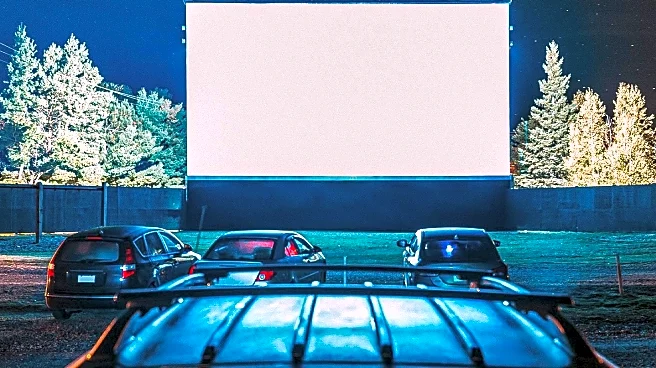What is the story about?
What's Happening?
The fascination with fear and anxiety, particularly in the context of horror movies, is explored by psychiatrist Arash Javanbakht. Historically, fear has been a survival mechanism, helping humans avoid danger. However, in modern times, some individuals seek out fear-inducing experiences, such as scary movies or haunted houses, for the thrill they provide. Javanbakht discusses the differences between fear and anxiety and suggests that engaging with fear in a controlled environment can be therapeutic for some people.
Why It's Important?
Understanding why people are drawn to fear-inducing experiences like horror movies can provide insights into human psychology and behavior. This interest in fear can have implications for the entertainment industry, as it highlights the demand for horror-themed content. Additionally, exploring the therapeutic potential of controlled fear experiences could influence mental health practices, offering new ways to address anxiety and stress. The study of fear also contributes to a broader understanding of human emotions and how they can be harnessed for both entertainment and therapeutic purposes.
What's Next?
Further research into the psychological effects of fear and anxiety could lead to new therapeutic approaches for managing these emotions. The entertainment industry may continue to explore innovative ways to engage audiences with fear-based content, potentially expanding the genre of horror. Mental health professionals might also consider incorporating controlled fear experiences into treatment plans for anxiety and stress, offering patients a unique way to confront and manage their fears.

















